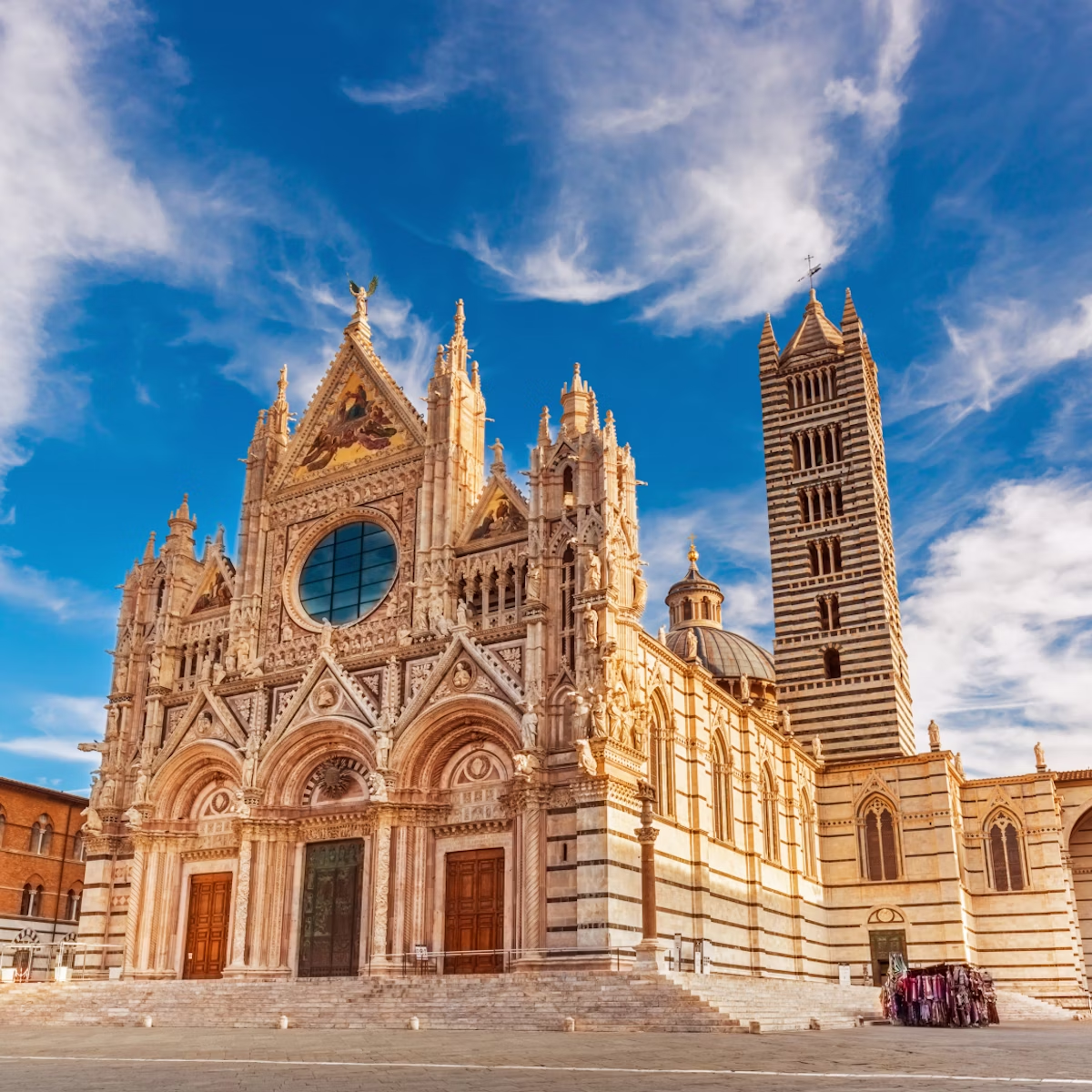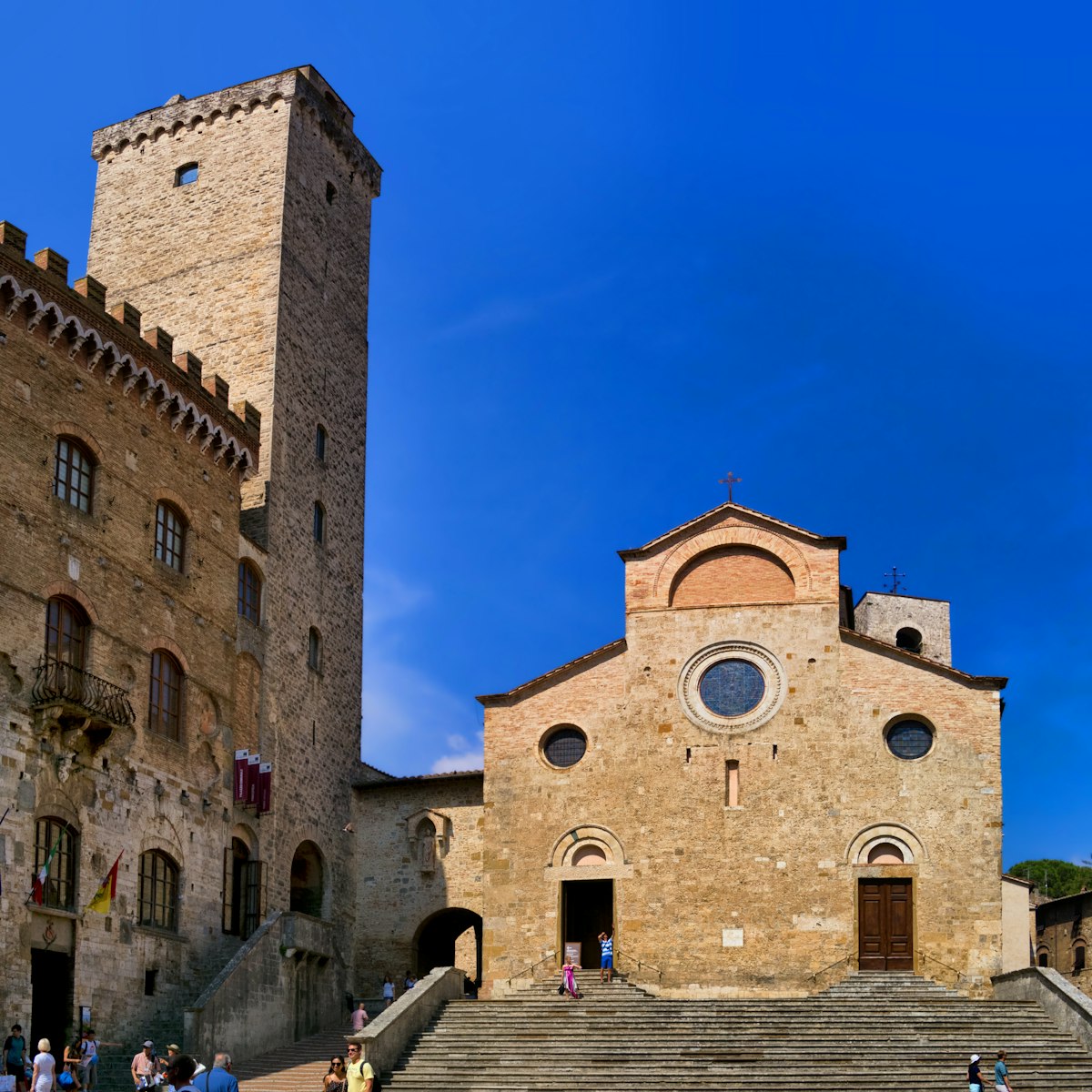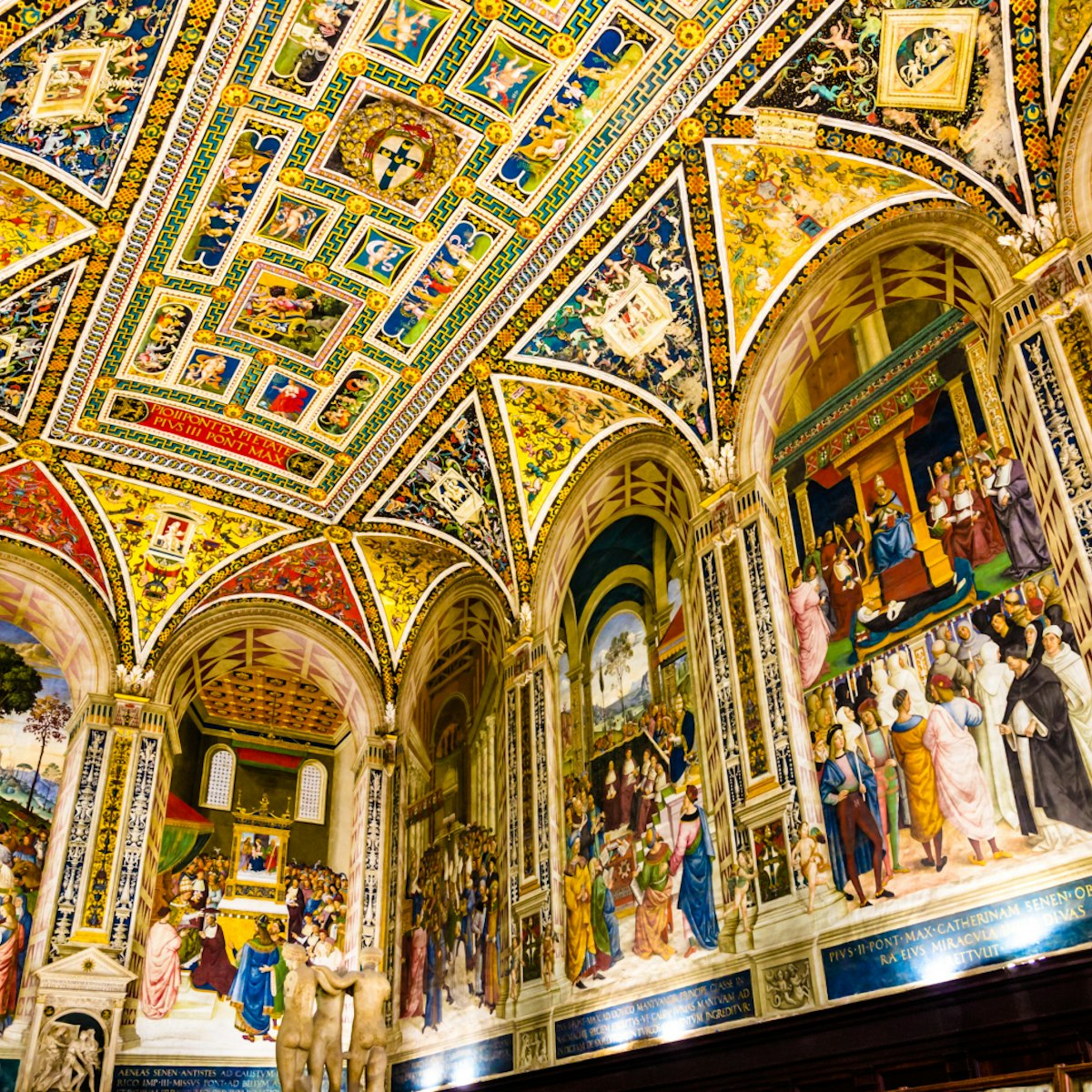This now-ruined 13th-century Cistercian abbey was one of the finest Gothic buildings of its day. On a hill above is the tiny, round Romanesque Cappella di Monte Siepi, dedicated to Galgano Guidotti, a saint who lived his last years here as a hermit. In the middle of the chapel is a sword embedded in a rock – legend tells us that San Galgano, a soldier, drove his weapon into the stone to symbolise his renunciation of worldly life.
In a room off the chapel, three badly damaged early 14th-century frescoes by Sienese artist Ambrogio Lorenzetti depict scenes from the saint's life.
The abbey is located 45km south of Siena, via the SS73. It's a popular weekend day-trip destination for locals – come mid-week to beat the crowds.






